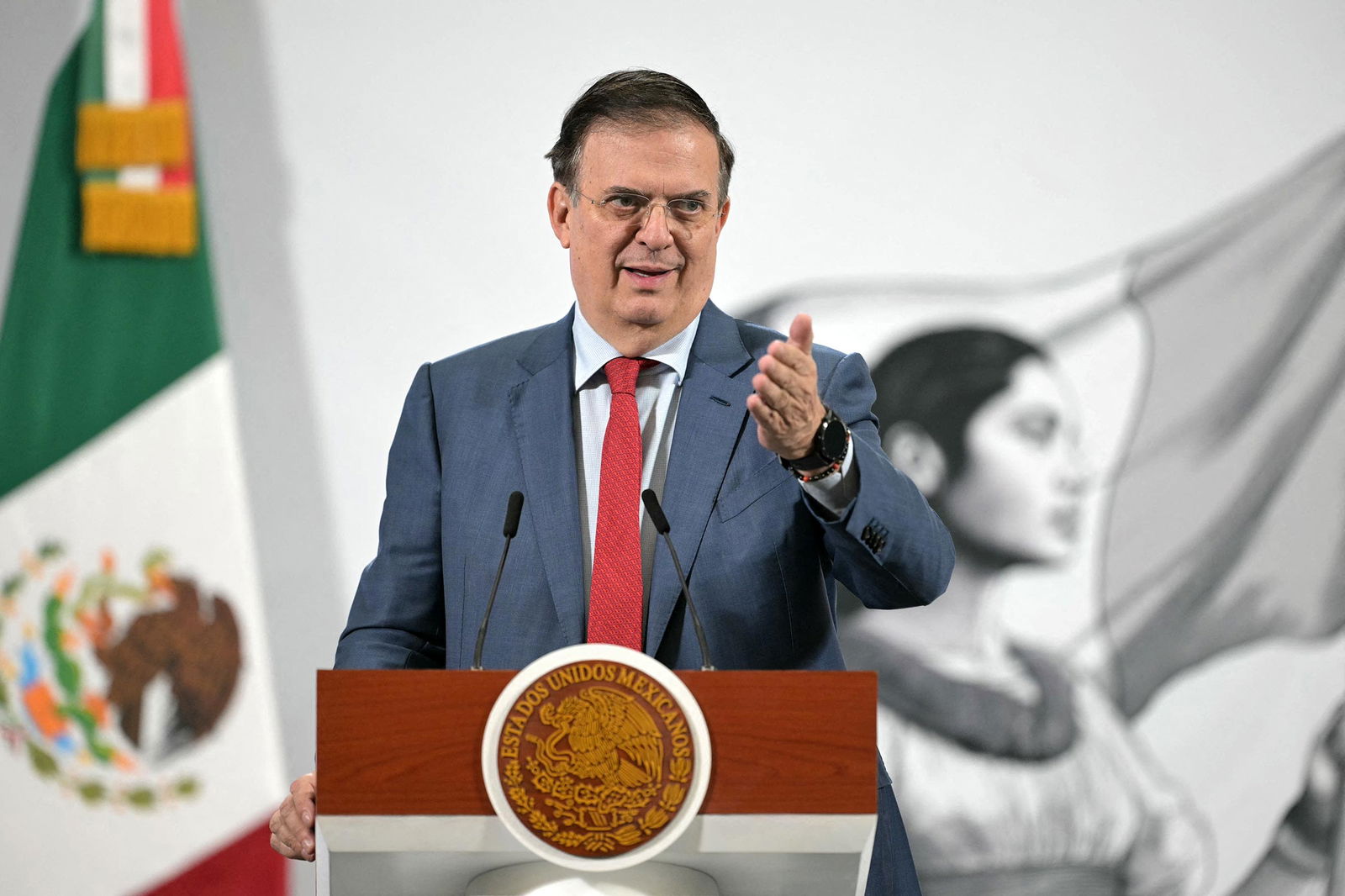Mexico praises ‘preferential’ US tariffs treatment

Mexico's Economy Secretary Marcelo Ebrard talks during a press conference at the National Palace in Mexico City on February 3.
By Verónica Calderón and Mitchell McCluskey, CNN
(CNN) — Mexico’s economic minister Marcelo Ebrard praised the “preferential treatment” received by Mexico after US President Donald Trump unveiled sweeping new global tariffs.
On Wednesday, Trump detailed new tariffs on many countries including a minimum 10% “baseline” tariff on imports. Neighboring Mexico and Canada, though still subject to prior tariffs, were exempt from the new reciprocal tariffs.
Mexican President Claudia Sheinbaum said that this treatment is due to Mexico’s positive relationship with the US.
“There are no additional tariffs to Mexico and that is good for the country,” Sheinbaum said at a Thursday morning press conference, touting her government’s relationship with the Trump administration.
“This has to do with the good relationship we have constructed with the US government, based on collaboration but with respect.”
“President Sheinbaum’s strategy has worked. We (Mexico) have a preferential treatment,” Ebrard said at the same press conference.
Shortly after being sworn in, Trump announced he would implement a 25% tariff on all imports from Canada and Mexico, but later agreed to pause tariffs for products covered by the United States-Mexico-Canada Agreement (USMCA) on free trade. The exempted product sectors include:
- Agriculture and food
- Electronic manufacturing
- Electrical equipment
- Chemicals
- Clothing and footwear
- Medical devices and pharmaceuticals
- Machinery and equipment
On Wednesday, the White House said this exemption and the tariffs on non-USMCA compliant products would continue until Trump determines the fentanyl and illegal immigration issues have been resolved.
However, Mexico remains subject to a separate 25% tariff on cars imported to the US. Sheinbaum said Mexico remains in dialogue with the US about the impact of US tariffs on the automobile industry.
During the press conference, Ebrard highlighted that other countries that have trade agreements with the US were still subject to the reciprocal tariffs.
“The only (trade) agreement with 0% tariffs is the USMCA,” he said.
Sheinbaum said Ebrard will likely travel to Washington next week to discuss the tariffs’ impact on non-USMCA compliant automotives, steel and aluminum sectors.
The automotive industry is the most important to Mexico as it accounts for 30% of the country’s imports to the US, Sheinbaum said.
The steel and aluminum industries represent “a little more than 2% of the country’s total exports,” according to Ebrard.
Mexico’s economy minister says the next 40 days will be seen as a negotiating period for Mexico to achieve the best possible trade conditions. “We estimate it will take around 40 days of negotiations. That’s the reality we’re in. We’re going to consolidate that (preferential) position,” Ebrard said.
Sheinbaum also announced a raft of economic measures Thursday that she said will strengthen domestic production of steel and aluminum, automobiles, pharmaceuticals, agriculture and other sectors.
“We are going to strengthen and expand national manufacturing for the domestic vehicle market, strengthening innovation, research and development, as well as energy efficiency. We have already discussed the plan with the automotive industry,” she said.
The Mexican leader has repeatedly touted keeping a “cool head” approach when it comes to the Trump administration. Sheinbaum – a 62-year-old climate scientist and former Mexico City mayor who became the first female president of Mexico in October – has remained pragmatic and calm, at least publicly, throughout repeated tariff threats from Washington.
In a post on Truth Social last month, Trump wrote, “Our relationship has been a very good one, and we are working hard, together, on the Border, both in terms of stopping Illegal Aliens from entering the United States and, likewise, stopping Fentanyl.” He added, “Thank you to President Sheinbaum for your hard work and cooperation!”
CNN’s Melissa Gray, Abel Alvarado and Sophie Tanno contributed to this report.
The-CNN-Wire
™ & © 2025 Cable News Network, Inc., a Warner Bros. Discovery Company. All rights reserved.

